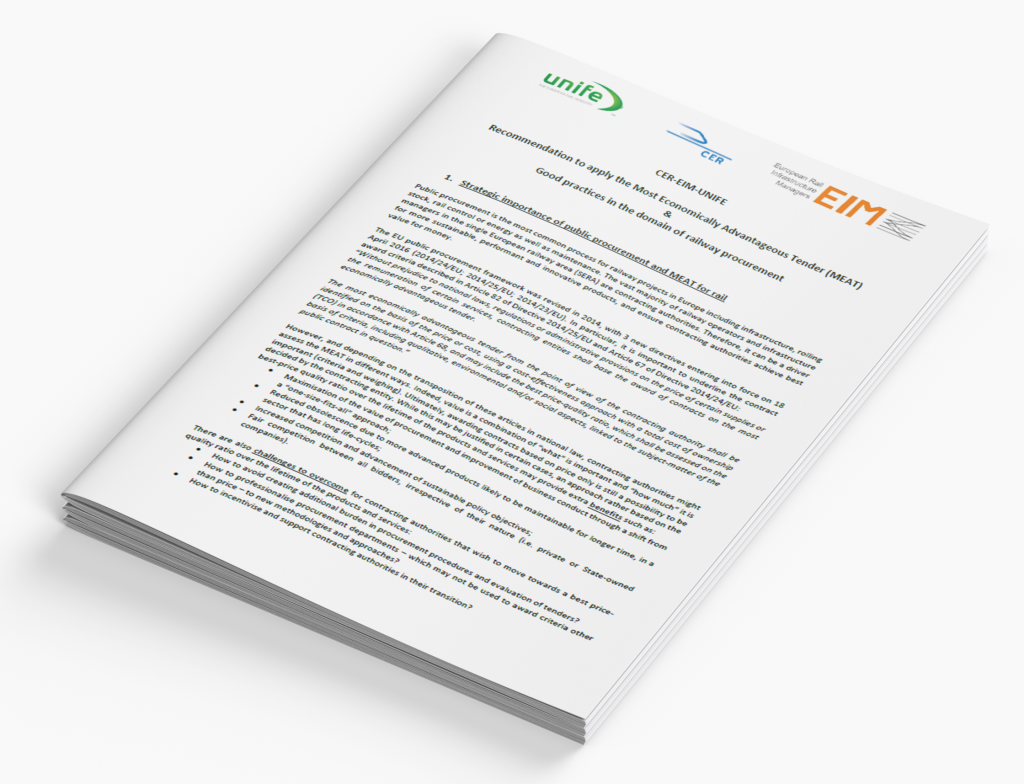Recommendation to apply the Most Economically Advantageous Tender (MEAT) & Good practices in the domain of railway procurement
Public procurement is the most common process for railway projects in Europe including infrastructure, rolling stock, rail control or energy as well as maintenance. The vast majority of railway operators and infrastructure managers in the single European railway area (SERA) are contracting authorities. Therefore, it can be a driver for more sustainable, performant and innovative products, and ensure contracting authorities achieve best value for money.
The EU public procurement framework was revised in 2014, with 3 new directives entering into force on 18 April 2016 (2014/24/EU; 2014/25/EU; 2014/23/EU). In particular, it is important to underline the contract award criteria described in Article 82 of Directive 2014/25/EU and Article 67 of Directive 2014/24/EU:
“Without prejudice to national laws, regulations or administrative provisions on the price of certain supplies or the remuneration of certain services, contracting entities shall base the award of contracts on the most economically advantageous tender.
The most economically advantageous tender from the point of view of the contracting authority shall be identified on the basis of the price or cost, using a cost-effectiveness approach with a total cost of ownership (TCO) in accordance with Article 68, and may include the best price-quality ratio, which shall be assessed on the basis of criteria, including qualitative, environmental and/or social aspects, linked to the subject-matter of the public contract in question.”
https://www.unife.org/wp-content/uploads/2021/11/20190711_Recommendation-for-applying-MEAT_CER_EIM_UNIFE_Final-version.pdf